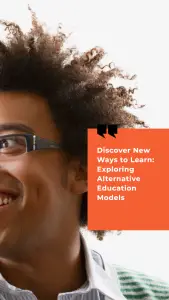education

education
Exploring Alternative Education Models
Introduction Alternative education models challenge the conventional methods of teaching and learning. They prioritize individualized instruction, experiential learning, and holistic development. These models acknowledge that every learner is unique, and the one-size-fits-all approach might not cater to their diverse needs and interests. Alternative education models often emphasize critical thinking, creativity, and practical skills, preparing students […]
Read More